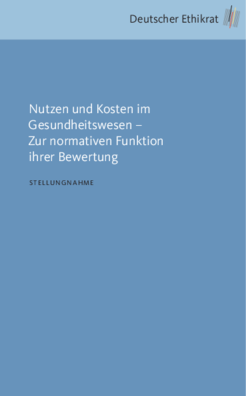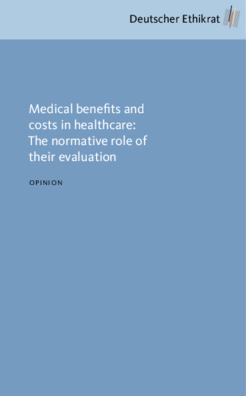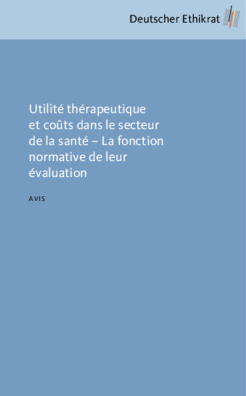Published: 27 January 2011
In wake of current legislative debates the German Ethics Council’s Opinion is intended to help focus the political and public attention on thorny issues of distributive justice, taking as an example the ethically disputed methods of analysis used in health economics.
Based on the principle of human dignity and on the involved fundamental rights, the German Ethics Council has formulated twelve recommendations with the twofold aim of optimizing the allocation of funds for healthcare while at the same time achieving equitable distribution.
Those include the expansion of transfer and care-related research, as well as assistance, independent of the manufacturer, for clinical studies in the practical treatment situation after a drug or medical device has been licensed. This should be linked to the systematic identification of research topics of particular relevance to healthcare provision. An appropriate statutory framework must be established for this purpose.
Moreover, the German Ethics Council perceives, that, in the context of the cost-utility analysis of medical treatments, there are reasons not to apply the principle of maximization of utility on a level higher than that of the patient group. Likewise, calculations of cost-effectiveness based on an efficiency-frontier approach cannot be used as a criterion for the appropriateness of decisions on reimbursement for innovations.



